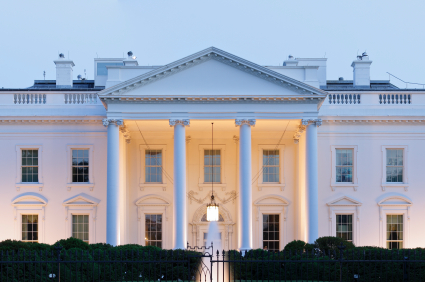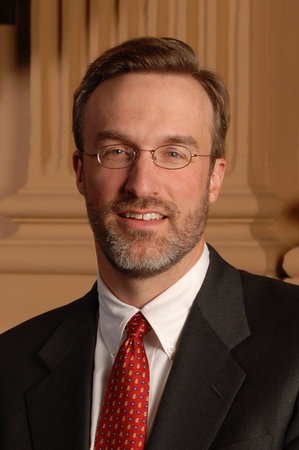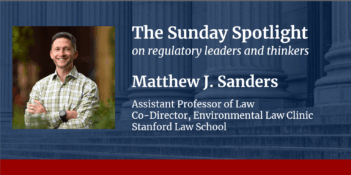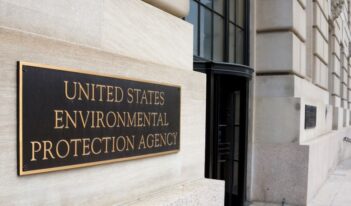
In his second term, President Obama will seek even more policy change by influencing federal administrative agencies.
In taking the oath of office on his second Inauguration Day, President Obama pledged himself yet again to “faithfully execute” his powers as President. These powers, though, will be deployed differently in his second term than in his first. Over the next four years, expect Obama to become what political scientist Richard Nathan has called an “Administrative President.”
In his first term, President Obama acted as a “Legislative President,” achieving a number of stunning successes in the halls of Congress, including a massive stimulus package, gigantic health care overhaul, sweeping financial industry regulatory reform, new food safety legislation, and an end to the ban on gays in the military. But the fact that the Democrats controlled both houses of Congress at the time proved crucial to the passage of these laws.
Since the Republican return to control of the House in early 2011, bipartisanship over legislation has become essential – but, alas, also still virtually non-existent. The recent fiscal cliff, debt ceiling, and sequestration debates provide no confidence that anything will change to make bipartisanship more likely. On the contrary, the recent fiscal debates only show how precarious the president’s legislative prospects really are.
To be sure, the president will make a legislative push for immigration reform and gun control. But the chances of major action remain highly uncertain. Moreover, the longer the dispute over the federal budget and debt persists, the more it will eat up the president’s small window of opportunity before his status as a lame duck sets in.
For better or worse, President Obama will find in his second term that, rather than work with Congress, he can better achieve his domestic policy goals through actions by federal administrative agencies such as the Department of Treasury, the Environmental Protection Agency, and dozens of others. We have already seen that his recent gun control package calls for numerous actions to be taken by executive branch agencies. Expect to see more of this over the next four years.
An Administrative President seeks to wield power by influencing the actions of cabinet departments and other agencies, including their issuance of new regulations. Regulations adopted by federal agencies have the same basic force of law as do acts of Congress, making them powerful policy tools that every modern president has realized the importance of shaping.
Some of the major laws enacted during President Obama’s first term – such as the Dodd-Frank Act and the health care reform law – actually mandate that administrative agencies adopt new regulations. Obama’s legislative gains as a first-term president have in this respect hard-wired a clear mandate for him to pursue his second term as an Administrative President.
Older legislation will also give his agencies administrative power. For example, the courts have held that the 1970 Clean Air Act requires the EPA to take regulatory action to address climate change. Rather than placing bets on passage of new climate change legislation – it clearly wouldn’t pass the House – expect to see the EPA move forward to regulate greenhouse gas emissions on its own, issuing new rules with which businesses and state governments will be forced to comply.
Administrative agencies always possess considerable discretionary power under the statutes that give them governmental authority. That general discretion allows them to pursue other policies largely on their own initiative – or with prodding from the White House.
Already federal agencies have in the pipeline a number of major new rules we can expect to see issued over the next few years. In Obama’s second term, look for revisions to federal smog standards, the adoption of the so-called Volcker Rule on how banks can invest their funds, and a Department of Transportation standard requiring automakers to install costly rearview cameras on new cars.
In addition, federal agencies are also likely to take a close look during Obama’s second term at a range of new energy regulations, including those affecting offshore oil drilling, coal extraction, pipeline safety, and natural gas production. We can also expect renewed efforts to adopt a myriad of regulations affecting financial markets, including those dealing with money-market mutual funds and consumer credit.
Of course, making policy change through administrative agencies will still demand strong presidential leadership and careful oversight by White House staff. Until the unemployment rate drops, members of Congress and interest groups opposed to new government regulation will continue to rail against the “job-killing” effects of federal rules. Legislators will hold hearings seeking to influence agencies’ work. They will try to use the budget process as a lever of control. Opponents in the Senate will also undoubtedly try to hold up the confirmation of new appointees needed to fill vacancies in agency leadership.
But even if it is no picnic, President Obama will still find the administrative process much more amenable to his policy goals in his second term than he will find the legislative process. Although there will be limits to what he can achieve administratively, the reality is that much of what he accomplishes domestically in the next four years will come from exercising his powers as an Administrative President.




